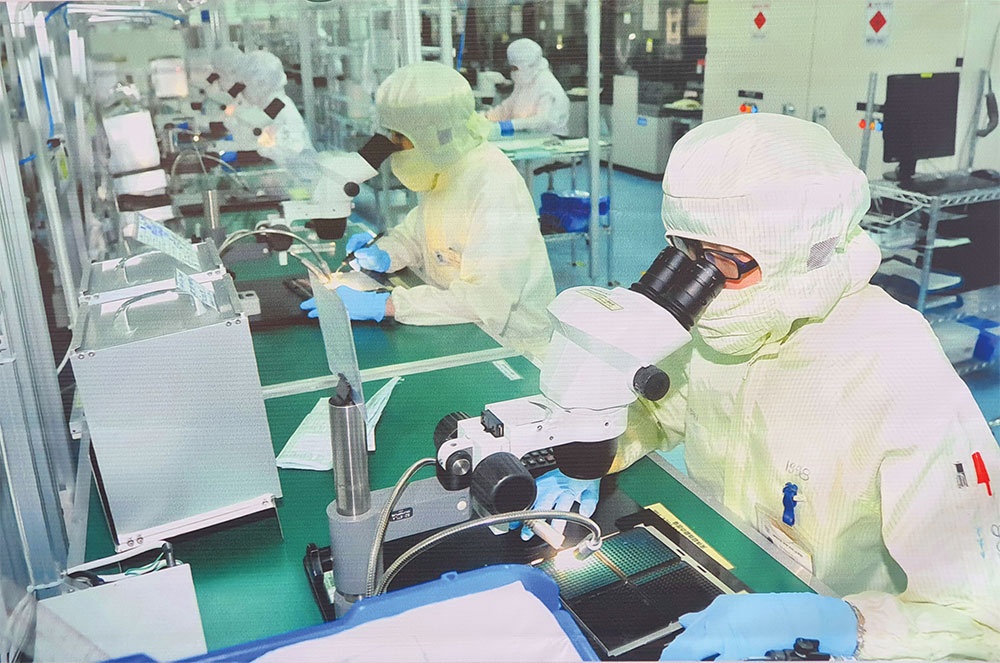Rule revival a hitch for foreign firms
 |
| Some workers need to carry out roles in different provinces, adding an extra layer of complexity, Photo: Le Toan |
According to Andrea Godfrey, partner of Global Mobility Services at KPMG in Vietnam, before Resolution No.105/NQ-CP expired at the end of 2022, the consultancy noted that compliance with work permits was better than before.
Now, the Vietnamese government is looking to refine the previous legislation, Decree No.152/2020/ND-CP, which is now back in the frame, to better accommodate the current hiring needs of foreign-invested enterprises and representative offices.
“Thanks to Decree 152, some issues and irregularities in the issuance of permits were taken away. I think it’s beneficial to Vietnam that work permits are being issued to people only where there is a need for foreign talent and that talent can then enhance the Vietnamese workforce. So the focus was right. However, some of the clauses in Decree 152 do not reflect the qualifications needed to undertake roles in the current business environment,” Godfrey said.
In September 2021, the Vietnamese government issued Resolution 105 to support businesses affected by the pandemic, by easing regulations for issuing and extending certification for work permits. This resolution was a welcome adjustment to the stricter Decree No.152/2020/ND-CP, which went into effect in February 2021.
The difficulties lie with Decree 152 now back in place. Foreign workers are now required to have a bachelor or higher degree relevant to their job position; previously issued work permits are no longer accepted as an affirmation of work experience; and, expatriates must fly to Vietnam to get their passport notarised, which causes extra cost and time. This also lengthens the application process while by law, they must apply for a work permit no later than 15 days before commencement of work in the country.
Although it is overall the right direction, KPMG assessed that some of the specific clauses of Decree 152 are creating difficulties in the current environment.
“When foreign corporations want to send their workers to representative offices in Vietnam, they have already assessed carefully the qualification and talent required for the expatriate. Projects may be delayed because they now no longer meet the requirements by the law in order to work in the country,” said Dang Duc Giang, director of Global Mobility Services at KPMG in Vietnam.
Giang noted that another challenge that the expiration of Resolution 105 might pose is that expatriates with a work permit issued by a certain province are no longer allowed to be sent to work in another province. The current rules now require the company to apply for a separate work permit in the other province.
“Industries that might see the biggest impact include construction and other technical industries, with people that hold operational or maintenance roles,” Giang said.
Godfrey added that for provincial authorities that are not used to the process, and it can be difficult to get proper advice as to how to apply for a new permit in another province, as it is an entirely new requirement and no official guidance has been given.
Regardless, Godfrey emphasised that the government has been listening to various representations and is looking at amending Decree 152 this year.
“I think there’s a recognition that Resolution 105 was helpful and is probably what’s needed at this point of time in Vietnam,” she said. “Ho Chi Minh City Department of Labour, Invalids, and Social Affairs recently held a meeting with the European Chamber of Commerce in Vietnam and acknowledged some of the issues that they were facing. But again, it’s very much dependent on the legal regulations and how they are implemented,” Godfrey said.
The experts assessed that compliance is also getting better across all businesses. While the laws are being refined, interpretation and practice now require attention.
“For foreign-invested enterprises and representative offices, a concern is that while Decree 152 seems clear in terms of regulation, its interpretation by local authorities varies from province to province, making it very difficult to follow. It’s important that not only do the regulations stay consistent and are realistic in the current environment, but that there needs to be a solid direction for practice and application,” Godfrey added.
| Assessing the operational role of representative offices |
What the stars mean:
★ Poor ★ ★ Promising ★★★ Good ★★★★ Very good ★★★★★ Exceptional
Related Contents
Latest News
More News
- Kurz Vietnam expands Gia Lai factory (February 27, 2026 | 16:37)
- SK Innovation-led consortium wins $2.3 billion LNG project in Nghe An (February 25, 2026 | 07:56)
- THACO opens $70 million manufacturing complex in Danang (February 25, 2026 | 07:54)
- Phu Quoc International Airport expansion approved to meet rising demand (February 24, 2026 | 10:00)
- Bac Giang International Logistics Centre faces land clearance barrier (February 24, 2026 | 08:00)
- Bright prospects abound in European investment (February 19, 2026 | 20:27)
- Internal strengths attest to commitment to progress (February 19, 2026 | 20:13)
- Vietnam, New Zealand seek level-up in ties (February 19, 2026 | 18:06)
- Untapped potential in relations with Indonesia (February 19, 2026 | 17:56)
- German strengths match Vietnamese aspirations (February 19, 2026 | 17:40)

 Tag:
Tag:




















 Mobile Version
Mobile Version